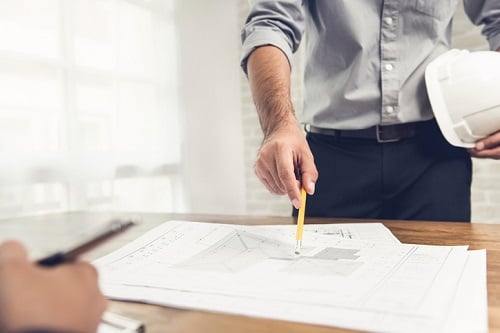Investors are realizing that it’s no longer enough to build or obtain property; impeccable design makes a big difference when it comes to commercial real estate

Finding the competitive advantage in commercial real estate can be tricky.
Tim Rose, executive vice president of DPC Companies in Colorado, recognizes the value of design and sees it as the element that has set allowed DPC to succeed in a competitive market that often under values the potential of space.
“I see a lot of mediocre design,” said Rose. “In a business that can be, in a lot of ways, be a commodity business, the only way I see for me and my company to succeed is to out-design my competition. I compete with some of the best architects, interior designers, you name it. In my opinion, that’s how we have set ourselves apart. We are known as an industry leader, we have out designed our competition and have been successful with what we have been able to put together.”
Rose said that spatial relationships are crucial to design, and recommends going through every detail, even down to the artwork chosen and where it lives in the space
“Every detail I extend out to every project I work on. Otherwise, these are just blocks of space and it’s a commodity. I address the senses: sight, smell, touch, and sound. I want to focus on how you feel in the space. I care about every minute detail. The colors, ceilings, furniture, flooring are part of the experience and thus need the utmost attention to detail.”
In order to get people to come to a certain building instead of the Class A building across the street, a property requires attractive and uncommon designs and amenities. Rose mentions a “killer” athletic club that DPC incorporated onto the main floor in one of its properties. Not only did they spend more money on the fitness equipment than they knew the competition would spend in a similar situation, but he said they also made sure that the space rivaled the top fitness clubs in the area in every way possible.
Consider adding luxurious amenities such as massage chairs, comfortable outdoor spaces for mealtimes and relaxation, and/or social spaces with pool tables and couches that would appeal to tenants. In some instances, these additions can add more value than anything done within individual units.
Being open to unfamiliar design elements and learning about various design principles will also help elevate your approach to designing your next space.
Rose, for example is big into Feng shui and color theory, whereas he’s noticed that other executives in his capacity don’t take that kind of initiative. Going above and beyond the norm to make sure you know exactly what will be successful is essential to your success. There are so many great design resources that are readily available and easily accessible, such as Houzz or Pinterest, that it’s easy for design novices to find places to start exploring the field.
Rose is constantly on the lookout for the latest ideas, whether that’s photographing something inspiring as he’s walking down the street or saving images from the internet. By seeing design elements in play with the space around it, it’s easier to see what’s working and why it does so well, Rose said.
Innovation is the way forward, and the key to innovation is always trying new approaches to solve problems. Determine how to do things differently than everyone else, and keep in mind that everyone else is also competing for the eyes of the consumer.
“It’s always about keeping your eye out for the next new and best thing,” said Rose. Everybody is trying to come up with the new, little ideas. “I love the new generation because they aren’t afraid to think outside the box. The older generation is like ‘no’ first; stay the course. We finally broke through on our partners and, as long as it is within reason, we factor it in,” said Rose.
That’s not to say you have to reinvent the wheel with each project. You’ve got to have conventional wisdom and guidance to pick the right things, and the market will tell you if it will work or not.
“If the property sells at the right price, proof positive. What you’re doing is validated,” said Rose. “If not, your instincts are not correct and you’ll need to make changes on the next project.”


